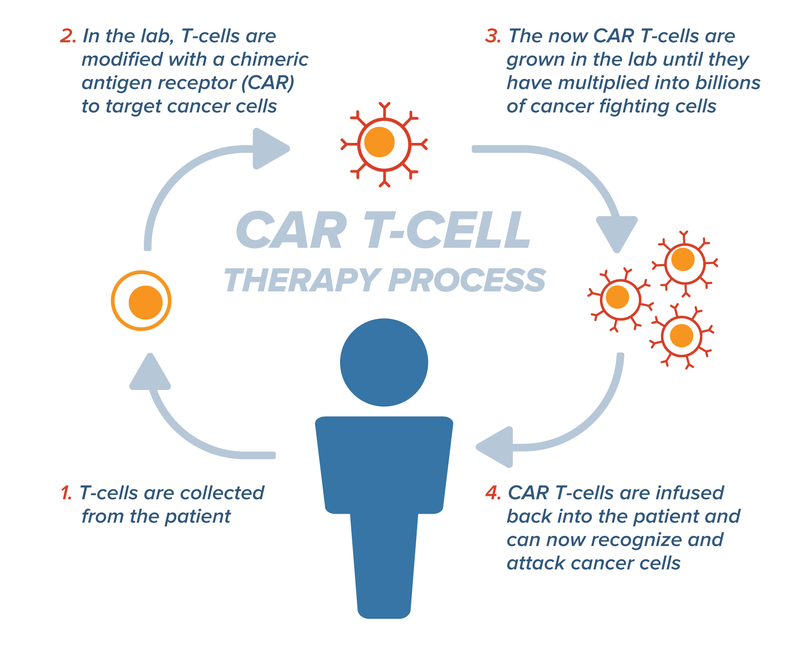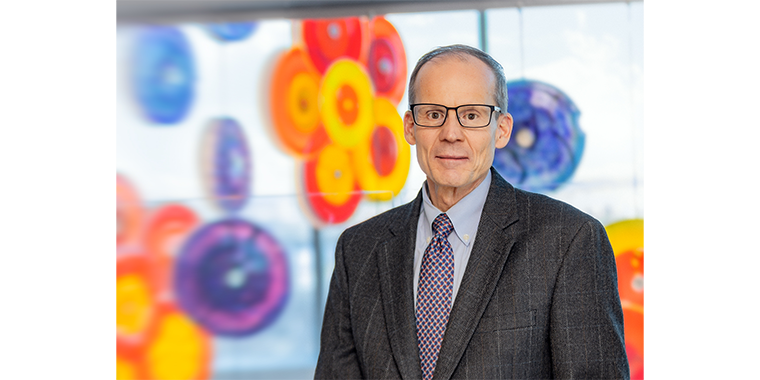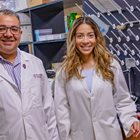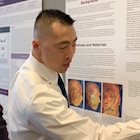One Kansas City University graduate’s vision and leadership is transforming cancer care, erasing barriers to equitable access and actively reshaping the very future of medicine with revolutionary leaps.
Joseph McGuirk, DO, didn’t just follow a path in medicine — he blazed one. A 1990 graduate of the Kansas City University (KCU) College of Osteopathic Medicine, McGuirk has emerged as a trailblazer in cancer treatment and research. As a leader at the University of Kansas Cancer Center (KUCC), his work with CAR T-cell therapy has redefined the future of cancer care, positioning KUCC as a national leader in cellular therapeutics.
Laying the foundation for success
McGuirk's path to becoming a leader in medicine was shaped over time, beginning as a student at KCU. Hailing from St. Louis, he found his way to Kansas City, where he quickly established strong connections that would support his future success. “KCU gave me a strong base — one that set me up for success in a way that was comprehensive and holistic. The network of KCU graduates is everywhere, and it’s a powerful one,” McGuirk said.
After earning his Doctor of Osteopathic Medicine (DO) degree, McGuirk went on to complete his residency at Yale New Haven Hospital and fellowship at Memorial Sloan Kettering Cancer Center. Later, he stepped into a leadership role at Yale University’s Cancer Center before returning to Kansas City in 2007 to join KUCC. “I wanted to build something from the ground up,” McGuirk said. “Kansas City had the potential, resources and community support I needed to make a real impact.”
Pioneering CAR T-cell therapy
 McGuirk currently serves as division director for hematologic malignancies and cellular therapeutics and holds the endowed Schutte-Speas Professorship in Hematology-Oncology. He is leading cutting-edge cancer research, particularly in CAR T-cell therapy, a transformative treatment that reprograms a patient’s immune cells to target and destroy cancer cells. “We take the patient’s T-cells, which are the immune cells responsible for attacking infections and abnormal cells, out of their blood,” McGuirk said. “In the lab, these cells are multiplied into billions of cells and genetically engineered to specifically target cancer cells. Once re-engineered, the T-cells are infused back into the patient’s bloodstream, where they hunt down and destroy the cancer cells.”
McGuirk currently serves as division director for hematologic malignancies and cellular therapeutics and holds the endowed Schutte-Speas Professorship in Hematology-Oncology. He is leading cutting-edge cancer research, particularly in CAR T-cell therapy, a transformative treatment that reprograms a patient’s immune cells to target and destroy cancer cells. “We take the patient’s T-cells, which are the immune cells responsible for attacking infections and abnormal cells, out of their blood,” McGuirk said. “In the lab, these cells are multiplied into billions of cells and genetically engineered to specifically target cancer cells. Once re-engineered, the T-cells are infused back into the patient’s bloodstream, where they hunt down and destroy the cancer cells.”
Changing the landscape of cancer care
KUCC has quickly become a leader in CAR T-cell therapy, offering all seven FDA-approved versions of this groundbreaking treatment. To date, McGuirk and his team have treated over 500 patients, with some traveling from as far as England, Portugal and Australia. They’re also running 25 clinical trials to see how CAR T-cell therapy can help treat solid tumors like breast, prostate and lung cancers.
McGuirk’s contributions to the field go beyond clinical treatment. He co-authored four manuscripts in The New England Journal of Medicine, highlighting major breakthroughs in CAR T-cell therapy, and has over 250 additional peer-reviewed publications that continue to shape the future of cancer treatment.
While CAR T-cell therapy has already proven to be life-changing, McGuirk is focused on making it more accessible to everyone who needs it. “Right now, CAR T-cell therapy is expensive. It costs about $500,000 to re-engineer the cells and another several hundred thousand to treat the patient,” McGuirk explains. But there’s good news — his team is exploring ways to make it more affordable by harvesting CAR T-cells from healthy young donors, which could drastically cut costs and treatment times. McGuirk and his colleagues are also looking at how CAR T-cell therapy could be used earlier in the treatment process, possibly replacing traditional treatments like chemotherapy and radiation.
As McGuirk looks toward the future, he’s optimistic about the direction of cancer treatment. “We’re not taking baby steps anymore—we’re making leaps,” he says. His goal is to target genetic abnormalities directly, eliminating the need for more invasive, less precise treatments. “We’re using our understanding of the immune system to improve how we fight cancer,” he says. “It’s the most exciting time of my career, and I’m proud to be part of these revolutionary changes.”
By 2027, McGuirk expects that KUCC will be treating as many as 450 patients a year with CAR T-cell therapy, continuing to push the boundaries of cancer care and giving hope to patients who might have otherwise run out of options.
From studying medicine to transforming it
McGuirk’s journey is a testament to the possibilities that await KCU graduates. Through his groundbreaking work in CAR T-cell therapy, he is changing health care for good. If you’re driven to build a career that has the potential to reshape cancer treatment and offer new hope to patients around the world, KCU is where it all begins.




(0) Comments